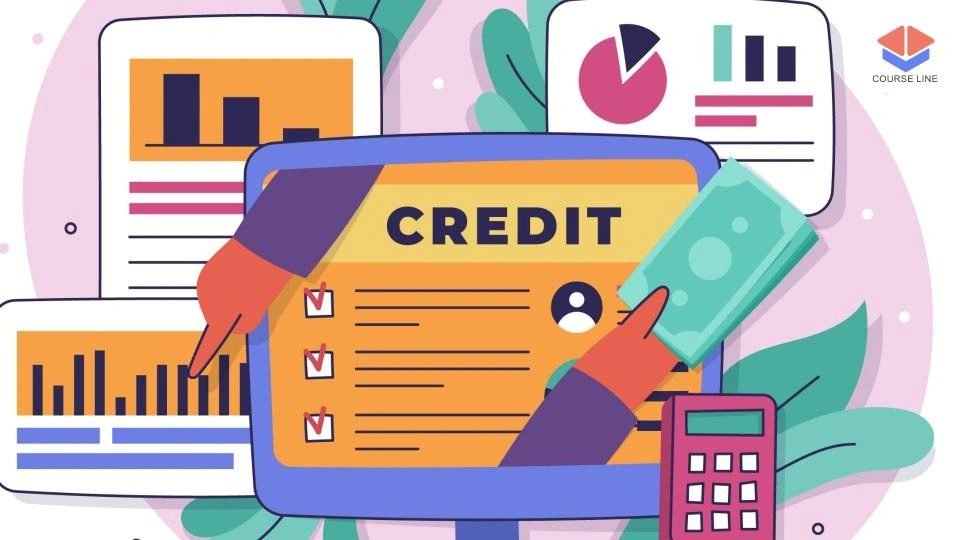Course Features
Price
Study Method
Online | Self-paced
Course Format
Reading Material - PDF, article
Duration
5 hours, 55 minutes
Qualification
No formal qualification
Certificate
At completion
Additional info
Coming soon
- Share
Overview
The Economics Level 2 course provides a comprehensive introduction to the fundamental principles of economics, starting with the exploration of market structures. Students will learn about perfect competition, monopolies, monopolistic competition, and oligopolies, gaining an understanding of how market power influences pricing and output decisions. This foundational knowledge is essential for understanding the various ways businesses and governments interact within an economy.
The course delves into pricing strategies, covering key concepts such as price discrimination, bundling, predatory pricing, and dynamic pricing. Students will understand how companies use different strategies to maximize profits and how these strategies impact consumers and competition. A key aspect of the course is international trade, where students will explore the benefits and costs of trade, the theory of comparative advantage, the impact of exchange rates, and protectionism’s effects on the global market.
Monetary and fiscal policies are critical areas of focus. Students will gain a solid understanding of how central banks control the money supply, the tools used in monetary policy, and its impact on inflation and business cycles. They will also learn about fiscal policy, how governments use taxation and spending to influence the economy, and how these policies can impact both short-term economic stability and long-term growth.
Finally, the course explores the key factors behind economic growth and development, including the role of human capital, technology, and institutions in fostering economic advancement. Students will also study the complex relationship between inequality and growth, providing a nuanced view of how different societies experience and manage economic development. This course offers a holistic view of economic concepts and equips students with the analytical tools needed to understand both domestic and global economic systems.
Who is this course for?
The Economics Level 2 course provides a comprehensive introduction to the fundamental principles of economics, starting with the exploration of market structures. Students will learn about perfect competition, monopolies, monopolistic competition, and oligopolies, gaining an understanding of how market power influences pricing and output decisions. This foundational knowledge is essential for understanding the various ways businesses and governments interact within an economy.
The course delves into pricing strategies, covering key concepts such as price discrimination, bundling, predatory pricing, and dynamic pricing. Students will understand how companies use different strategies to maximize profits and how these strategies impact consumers and competition. A key aspect of the course is international trade, where students will explore the benefits and costs of trade, the theory of comparative advantage, the impact of exchange rates, and protectionism’s effects on the global market.
Monetary and fiscal policies are critical areas of focus. Students will gain a solid understanding of how central banks control the money supply, the tools used in monetary policy, and its impact on inflation and business cycles. They will also learn about fiscal policy, how governments use taxation and spending to influence the economy, and how these policies can impact both short-term economic stability and long-term growth.
Finally, the course explores the key factors behind economic growth and development, including the role of human capital, technology, and institutions in fostering economic advancement. Students will also study the complex relationship between inequality and growth, providing a nuanced view of how different societies experience and manage economic development. This course offers a holistic view of economic concepts and equips students with the analytical tools needed to understand both domestic and global economic systems.
Requirements
The Economics Level 2 course provides a comprehensive introduction to the fundamental principles of economics, starting with the exploration of market structures. Students will learn about perfect competition, monopolies, monopolistic competition, and oligopolies, gaining an understanding of how market power influences pricing and output decisions. This foundational knowledge is essential for understanding the various ways businesses and governments interact within an economy.
The course delves into pricing strategies, covering key concepts such as price discrimination, bundling, predatory pricing, and dynamic pricing. Students will understand how companies use different strategies to maximize profits and how these strategies impact consumers and competition. A key aspect of the course is international trade, where students will explore the benefits and costs of trade, the theory of comparative advantage, the impact of exchange rates, and protectionism’s effects on the global market.
Monetary and fiscal policies are critical areas of focus. Students will gain a solid understanding of how central banks control the money supply, the tools used in monetary policy, and its impact on inflation and business cycles. They will also learn about fiscal policy, how governments use taxation and spending to influence the economy, and how these policies can impact both short-term economic stability and long-term growth.
Finally, the course explores the key factors behind economic growth and development, including the role of human capital, technology, and institutions in fostering economic advancement. Students will also study the complex relationship between inequality and growth, providing a nuanced view of how different societies experience and manage economic development. This course offers a holistic view of economic concepts and equips students with the analytical tools needed to understand both domestic and global economic systems.
Career path
The Economics Level 2 course provides a comprehensive introduction to the fundamental principles of economics, starting with the exploration of market structures. Students will learn about perfect competition, monopolies, monopolistic competition, and oligopolies, gaining an understanding of how market power influences pricing and output decisions. This foundational knowledge is essential for understanding the various ways businesses and governments interact within an economy.
The course delves into pricing strategies, covering key concepts such as price discrimination, bundling, predatory pricing, and dynamic pricing. Students will understand how companies use different strategies to maximize profits and how these strategies impact consumers and competition. A key aspect of the course is international trade, where students will explore the benefits and costs of trade, the theory of comparative advantage, the impact of exchange rates, and protectionism’s effects on the global market.
Monetary and fiscal policies are critical areas of focus. Students will gain a solid understanding of how central banks control the money supply, the tools used in monetary policy, and its impact on inflation and business cycles. They will also learn about fiscal policy, how governments use taxation and spending to influence the economy, and how these policies can impact both short-term economic stability and long-term growth.
Finally, the course explores the key factors behind economic growth and development, including the role of human capital, technology, and institutions in fostering economic advancement. Students will also study the complex relationship between inequality and growth, providing a nuanced view of how different societies experience and manage economic development. This course offers a holistic view of economic concepts and equips students with the analytical tools needed to understand both domestic and global economic systems.
-
- Introduction to market structures 00:10:00
- Perfect competition 00:10:00
- Monopoly and monopolistic competition 00:10:00
- Oligopoly 00:10:00
- The role of market power in pricing and output decisions 00:10:00
-
- Introduction to pricing strategies 00:10:00
- Price discrimination 00:10:00
- Bundling and tying 00:10:00
- Predatory pricing 00:10:00
- Dynamic pricing 00:10:00
- Benefits and costs of international trade 00:10:00
- Comparative advantage and trade 00:10:00
- Protectionism and its effects 00:10:00
- Exchange rates and their impact on trade 00:10:00
- Introduction to fiscal policy 00:10:00
- The role of the government 00:10:00
- Tools of fiscal policy 00:10:00
- Fiscal policy and the business cycle 00:10:00
- Fiscal policy and long-term economic growth 00:10:00
- Exam of Economics Level 2 00:50:00

No Reviews found for this course.
Is this certificate recognized?
Yes, our premium certificate and transcript are widely recognized and accepted by embassies worldwide, particularly by the UK embassy. This adds credibility to your qualification and enhances its value for professional and academic purposes.
I am a beginner. Is this course suitable for me?
Yes, this course is designed for learners of all levels, including beginners. The content is structured to provide step-by-step guidance, ensuring that even those with no prior experience can follow along and gain valuable knowledge.
I am a professional. Is this course suitable for me?
Yes, professionals will also benefit from this course. It covers advanced concepts, practical applications, and industry insights that can help enhance existing skills and knowledge. Whether you are looking to refine your expertise or expand your qualifications, this course provides valuable learning.
Does this course have an expiry date?
No, you have lifetime access to the course. Once enrolled, you can revisit the materials at any time as long as the course remains available. Additionally, we regularly update our content to ensure it stays relevant and up to date.
How do I claim my free certificate?
I trust you’re in good health. Your free certificate can be located in the Achievement section. The option to purchase a CPD certificate is available but entirely optional, and you may choose to skip it. Please be aware that it’s crucial to click the “Complete” button to ensure the certificate is generated, as this process is entirely automated.
Does this course have assessments and assignments?
Yes, the course includes both assessments and assignments. Your final marks will be determined by a combination of 20% from assignments and 80% from assessments. These evaluations are designed to test your understanding and ensure you have grasped the key concepts effectively.
Is this course accredited?
We are a recognized course provider with CPD, UKRLP, and AOHT membership. The logos of these accreditation bodies will be featured on your premium certificate and transcript, ensuring credibility and professional recognition.
Will I receive a certificate upon completion?
Yes, you will receive a free digital certificate automatically once you complete the course. If you would like a premium CPD-accredited certificate, either in digital or physical format, you can upgrade for a small fee.
Course Features
Price
Study Method
Online | Self-paced
Course Format
Reading Material - PDF, article
Duration
5 hours, 55 minutes
Qualification
No formal qualification
Certificate
At completion
Additional info
Coming soon
- Share
NEBOSH: Introduction to Health & Safety at Work
Course Line237£490.00Original price was: £490.00.£14.99Current price is: £14.99.Health Care Assistant Level 3 Advanced Diploma
Course Line240£490.00Original price was: £490.00.£14.99Current price is: £14.99.Credit Control Level 5 Advanced Diploma
Course Line251£490.00Original price was: £490.00.£14.99Current price is: £14.99.





